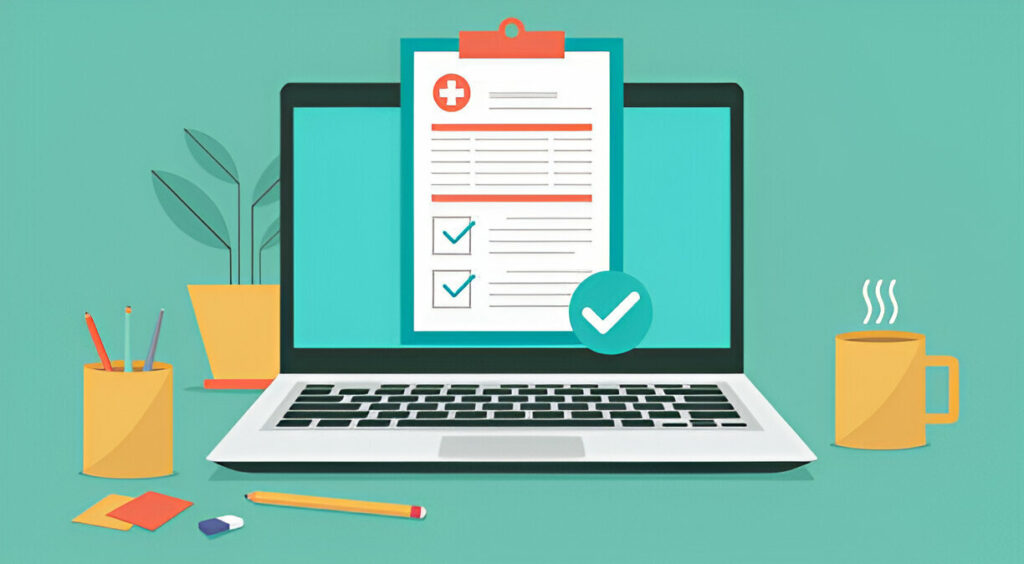Preparing for a medical test can sometimes feel overwhelming, especially if it’s your first time or if the test is essential for diagnosing a health condition. Knowing the proper steps to take can make the process smoother, help ensure accurate results, and reduce any anxiety you might have. In this blog post, we will walk you through the dos and don’ts to help you prepare for a medical test, including useful tips on utilizing modern tools like telemedicine to aid in the process.
Why Proper Preparation for a Medical Test Matters
Whether you are undergoing a routine check-up, blood work, imaging test, or specialized procedure, preparing for a medical test is crucial for obtaining reliable results. Improper preparation can lead to inaccurate findings, delayed diagnoses, or the need for a repeat test. Additionally, it can save time, money, and stress, making the experience more comfortable overall.
Telemedicine has made it easier to prepare for medical tests, especially for consultations with your doctor or test administrators. You can get detailed instructions remotely and clear up any questions about the process.
Dos: Essential Tips for Medical Test Preparation
1. Follow Pre-Test Instructions Carefully
One of the most important aspects of preparing for a medical test is adhering to the instructions provided by your healthcare provider or testing facility. These instructions are specifically tailored to ensure the most accurate results, and skipping or altering them can compromise the test. Some common instructions include:
- Fasting: Many tests, such as blood sugar or cholesterol tests, may require you to fast for a specific period before the procedure. Fasting ensures that food or drink doesn’t interfere with the accuracy of the test results.
- Medication Adjustments: In some cases, you may need to stop or adjust medications temporarily. Always consult with your healthcare provider about any changes before discontinuing medication.
- Hydration: Some tests may require you to drink plenty of water beforehand, while others, such as a urine test, may require you to limit fluid intake.
2. Schedule the Test at the Right Time
Scheduling your medical test at an appropriate time is essential for ensuring accuracy. For example, some tests should be done early in the morning when hormone levels are more consistent. Additionally, for certain tests, you may need to schedule when your symptoms are present or at a particular stage of your treatment.
For telemedicine consultations, the flexibility of scheduling can help you determine the best time for the test based on your health history and lifestyle.
3. Bring Relevant Medical Records
When preparing for a medical test, it’s important to bring any relevant medical records, especially if you’re undergoing a specialized test or procedure. This includes:
- Previous Test Results: If you’ve had similar tests in the past, bring these results along to help your healthcare provider make comparisons.
- Medications and Allergies: Inform the test administrator about any ongoing medications or allergies you have, as these can affect the results or the test process.
If you’re unsure about what documents to bring, you can always schedule a telemedicine appointment with your doctor for clarification.
Don’ts: Common Mistakes to Avoid Before a Medical Test
1. Don’t Ignore Fasting or Dietary Restrictions
As tempting as it might be to have a snack or meal before a medical test, ignoring fasting or dietary restrictions can severely affect the accuracy of the test. For example, eating before a blood test may skew cholesterol or glucose levels, leading to incorrect conclusions. Always follow your doctor’s instructions to fast or adjust your diet prior to the test.
2. Don’t Take Medications Without Consulting Your Doctor
Before undergoing certain medical tests, you may be asked to stop taking specific medications. It’s important not to stop taking any prescribed medications without consulting your healthcare provider. Some tests, especially imaging tests or tests involving the heart, may require you to adjust your dosage or temporarily stop medications that could interfere with the results.
If you’re unsure about whether you should take or skip any medications before your medical test, contact your doctor for advice.
3. Don’t Forget to Ask Questions
If you’re feeling nervous or confused about the test, don’t hesitate to ask questions. Understanding the procedure, potential risks, and the purpose of the test can ease your anxiety and help you better prepare. You can ask your healthcare provider or test administrator about:
- The exact steps of the procedure.
- Any potential risks or side effects.
- How long the test will take.
Additionally, you can schedule a telemedicine consultation if you need to clarify any concerns remotely. Virtual appointments can save time and allow you to receive guidance before your test.
How Telemedicine Can Help in Preparing for Medical Tests
With the rise of telemedicine, preparing for a medical test has become more convenient and efficient. Here are some ways telemedicine can assist you:
1. Remote Consultation for Test Preparation
If you’re unsure about how to prepare for a medical test, you can schedule a telemedicine consultation with your healthcare provider. This allows you to discuss any instructions, medications, or precautions without having to visit the doctor’s office. For example, you can clarify whether you need to fast, take any medications, or avoid specific activities before the test.
2. Monitoring and Follow-up Care
For some tests, particularly chronic condition management or post-surgical monitoring, telemedicine can be used to follow up and ensure that you are properly managing your health after the test. Telemedicine allows your healthcare provider to check on your progress and discuss any potential concerns without requiring an in-person visit.
3. Receiving Results and Next Steps
Once your medical test results are available, telemedicine allows you to receive them remotely through virtual consultations. Your healthcare provider can explain the results in detail and recommend next steps or further testing. This reduces the need for additional in-person visits, streamlining the process.
Conclusion
Preparing for a medical test doesn’t have to be stressful. By following the dos and don’ts outlined in this guide, you can ensure that you are fully prepared for your test, helping to achieve accurate results. Remember to follow all instructions carefully, bring any necessary documentation, and consult your healthcare provider or use telemedicine for any questions or concerns you may have.
Whether you’re preparing for a routine check-up or a more complex procedure, telemedicine can offer added convenience and support throughout the process. With the right preparation and guidance, you can approach your medical test with confidence and peace of mind.
For more information on preparing for your next test , visit Medical Test Preparation Page
Also read : Regular Health Screenings and Why They Are Vital




